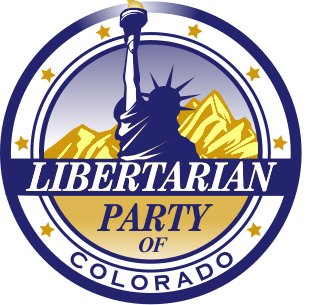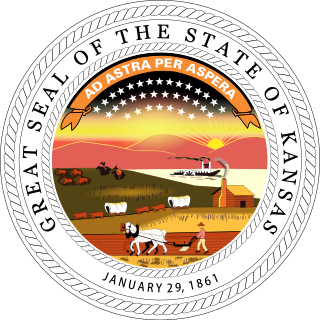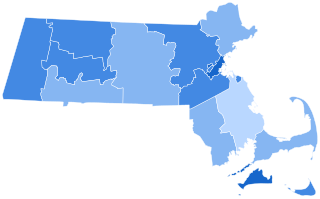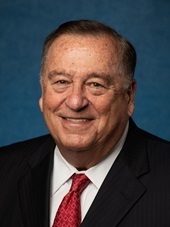Related Research Articles
Ballot access are rules and procedures regulating the right to candidacy, the conditions under which a candidate, political party, or ballot measure is entitled to appear on voters' ballots in elections in the United States.
The Oklahoma Libertarian Party is the state affiliate of the Libertarian Party in Oklahoma. It has been active in state politics since the 1970s, but due to Oklahoma's ballot access requirements the party has been an officially recognized party during only portions of the last twenty-five years. In 2016, The Oklahoma Libertarian Party regained ballot access. The state party has secured ballot access through at least 2024.

The Maine Green Independent Party is a state-level political party affiliated with the Green Party of the United States. It is the oldest state green party in the United States. It was founded following an informal meeting of 17 environmental advocates, including Bowdoin College professor John Rensenbrink and others in Augusta, Maine in January 1984. From 1994 to 2006, the party's gubernatorial nominees received between 6% and 10% of the vote.

The Green-Rainbow Party (GRP) is the Massachusetts affiliate of the Green Party of the United States and a political designation in Massachusetts officially recognized by the Secretary of the Commonwealth of Massachusetts. Up until 2020, it was an officially recognized political party in Massachusetts, losing that status as the result of vote tallies in the November 2020 election.

The Libertarian Party of Colorado (LPCO) is the Colorado affiliate of the national Libertarian Party (LP). As of April 2023, elected Libertarians in Colorado include Keenesburg mayor Aron Lam and Craig city councilman Paul James.

The Libertarian Association of Massachusetts (LAMA), previously known as the Libertarian Party of Massachusetts, is a libertarian political party in Massachusetts. It was affiliated with the national Libertarian Party from its founding until 2022, and is now affiliated with Liberal Party USA.

Elections in the State of Oklahoma are established by the Oklahoma Constitution in Section 1 of Article 3. They are governed by the Oklahoma State Election Board.

The Arizona Libertarian Party (AZLP) is the Arizona affiliate of the national Libertarian Party (LP) and has been active since its foundation on October 7, 1972.

The Libertarian Party of Maine (LPME) is the Maine affiliate of the Libertarian Party.
The Massachusetts general election, 2008 were held on November 4, 2008 throughout Massachusetts. Among the elections which took place were those for the office of President of the United States, John Kerry's seat in the Senate, all ten seats in the Massachusetts delegation to the House of Representatives, all eight seats in the Massachusetts Governor's Council, and all of the seats of the Massachusetts Senate and Massachusetts House of Representatives. There were also three ballot questions: to eliminate the commonwealth's income tax; to decriminalize possession of a small amount of marijuana; and to prohibit greyhound racing. Numerous local elections also took place throughout the state.

The number of elections in Kansas varies by year. Kansas has a gubernatorial election every four years. Members of the state's United States congressional delegation run for election or re-election at the times set out in the United States Constitution. Primary elections assist in choosing political parties' nominees for various positions. On a regional basis, elections also cover municipal issues. In addition, a special election can occur at any time.
A Massachusetts general election was held on November 5, 2002 in the Commonwealth of Massachusetts.
A Massachusetts general election was held on November 3, 1998 in the Commonwealth of Massachusetts.

The United Independent Party or UIP was a political party based in Massachusetts, United States. The chairman of the UIP was Evan Falchuk, a former health care executive who submitted enough signatures to be on the 2014 gubernatorial ballot. When the party and Falchuk announced their intention to run in 2014, it billed itself as pragmatically progressive and fiscally sensible.

The 2016 United States presidential election in Massachusetts was held on Tuesday, November 8, 2016, as part of the 2016 United States presidential election in which all 50 states plus the District of Columbia participated. Massachusetts voters chose electors to represent them in the Electoral College via a popular vote, pitting the Republican Party's nominee, businessman Donald Trump, and running mate Indiana Governor Mike Pence against Democratic Party nominee, former Secretary of State Hillary Clinton, and her running mate Virginia Senator Tim Kaine. Massachusetts has 11 electoral votes in the Electoral College.

The 2016 United States presidential election in California was held on Tuesday, November 8, 2016, as part of the 2016 United States presidential election in which all 50 states plus the District of Columbia participated. California voters chose electors to represent them in the Electoral College via a popular vote, pitting the Republican Party's nominee, businessman Donald Trump, and running mate Indiana Governor Mike Pence against Democratic Party nominee, former Secretary of State Hillary Clinton, and her running mate Virginia Senator Tim Kaine. California had 55 electoral votes in the Electoral College, the most of any state.

The 2020 United States presidential election in Massachusetts was held on Tuesday, November 3, 2020, as part of the 2020 United States presidential election in which all 50 states plus the District of Columbia participated. Massachusetts voters chose electors to represent them in the Electoral College via a popular vote, pitting the Republican Party's nominee, incumbent President Donald Trump, and running mate Vice President Mike Pence against Democratic Party nominee, former Vice President Joe Biden, and his running mate California Senator Kamala Harris. Massachusetts has 11 electoral votes in the Electoral College.
The 2020 Massachusetts general election was held on November 3, 2020, throughout Massachusetts. Primary elections were held on September 1, 2020.

Massachusetts Ranked-Choice Voting Initiative, also known as Question 2, was an initiative at the 2020 Massachusetts general election that would have changed primaries and elections in Massachusetts from plurality voting to ranked-choice voting (RCV) for all Massachusetts statewide offices, state legislative offices, federal congressional offices, and certain other offices beginning in 2022. RCV would not be extended to elections for president, county commissioner, or regional district school committee member. The initiative failed, with 54.8% of voters voting 'No' and 45.2% 'Yes'.

The 2022 Massachusetts House of Representatives election was held on Tuesday, November 8, 2022, with the primary election having been held on Tuesday, September 6, 2022. Massachusetts voters selected all 160 members of the State House to serve two-year terms in the 2023–2024 Massachusetts legislature. The election coincided with United States national elections and Massachusetts state elections, including U.S. House, Governor, and Massachusetts Senate.
References
- ↑ "General Laws, Part I, Title VIII, Chapter 50, Section 1". The General Court of the Commonwealth of Massachusetts. State of Massachusetts. Retrieved 2022-11-28.
- 1 2 3 4 "Massachusetts Directory of Political Parties and Designations". sec.state.ma.us. Secretary of the Commonwealth of Massachusetts . Retrieved February 19, 2022.
- 1 2 Rhodes, George (6 August 2015). "In Mass., there's even a Pizza Party". Sun Chronicle. Retrieved 8 August 2016.
- 1 2 Political Parties and Political Designations, As of 12/31/2014, Town of North Reading (accessed August 27, 2016).
- ↑ State Primary Election Types, National Conference of State Legislatures (July 21, 2016).
- ↑ Frequently Asked Questions for New Voters, City of Boston Election Department (accessed August 27, 2016).
- ↑ Winger, Richard (8 August 2016). "Libertarian Petition in Massachusetts Has Enough Valid Signatures". Ballot Access News . Retrieved 8 August 2016.
- ↑ Quinn, Tom (14 April 2016). "Tired of politics as usual? Tap your inner pirate, or try pizza". Worcester Magazine . Retrieved 8 August 2016.
- ↑ Cambridge Election Commission Voter Registration Training Manual. Cambridge, Massachusetts: City of Cambridge. 2011. p. 5.
- ↑ "Town of Reading Election Staff Manual". Elections. Town of Reading, Massachusetts. March 26, 2022. Retrieved February 4, 2023.